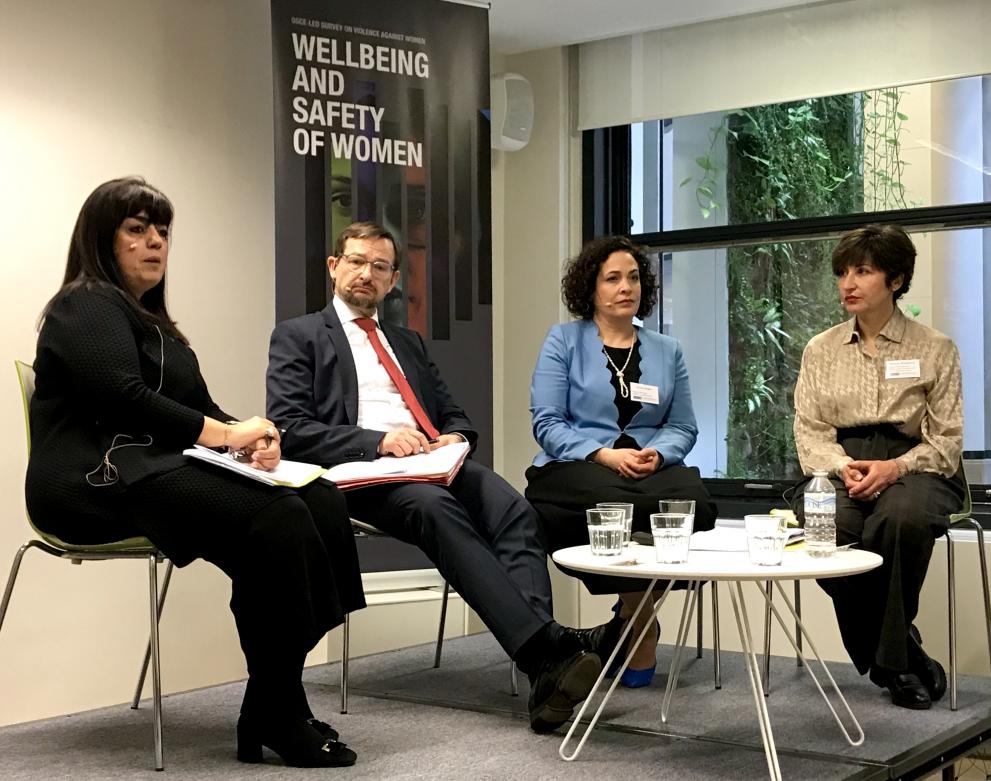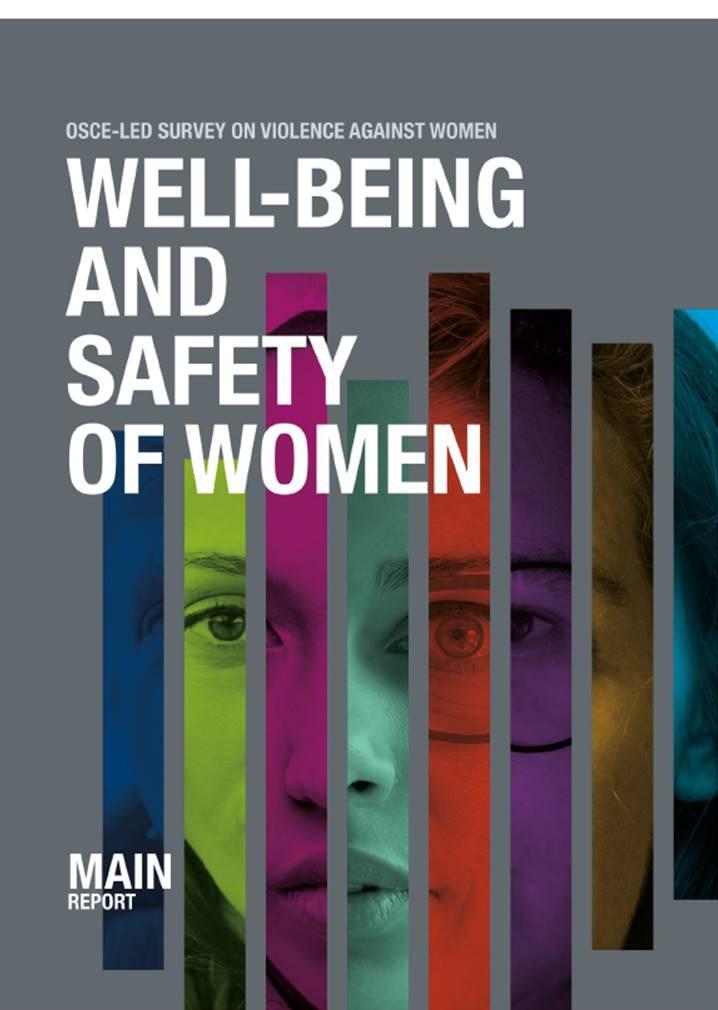
OSCE Secretary General Thomas Greminger and European Union External Action Service’s Principal Advisor on Gender and on the implementation of UNSCR 1325 on Women, Peace and Security Gender Mara Marinaki today launched a survey that gives a detailed picture of the physical, sexual and psychological violence many women and girls have had to endure in South-Eastern and Eastern Europe in the last decades.
The survey reveals that 70% of women interviewed experienced some form of violence since the age of 15, while 45% of all women interviewed experienced at least one form of sexual harassment since they were 15 years old and 21% of women experienced physical, sexual or psychological violence during childhood (up to the age of 15). According to the survey, some of the factors that make it more likely for women to be subjected to violence are being part of a minority, being young, poor or economically dependent, or having children. Women with partners who often drink, are unemployed or have fought in armed conflict are also more likely to experience violence.
The report, which was co-funded by the Instrument contributing to Stability and Peace (IcSP) with € 2 million, is based on a survey undertaken in 2018 in Albania, Bosnia and Herzegovina, Kosovo*, Montenegro, North Macedonia, Serbia, Moldova and Ukraine. In total, 15,179 women aged 18 to 74 were interviewed for the survey, which was designed to provide high quality research and data to increase the understanding of women’s experience of violence in conflict and non-conflict situations. In addition to a quantitative view, it also gives a unique insight into the prevalence and consequences of violence against women, and into persistent harmful norms and attitudes in the region.
“Violence against women and girls is a human rights violation that has wide-reaching consequences: it not only threatens the security and safety of its victims, but also influences the communities and societies they live in,” said OSCE Secretary General Thomas Greminger. “This OSCE-led survey sheds light for the first time on the prevalence of violence that women and girls suffer in this part of Europe,” he added. “It also gives policy-makers the data and tools they need to improve national laws and policies and put in place efficient frameworks to better protect victims.”
“Conflict-related sexual and gender-based violence are part of a continuum of gender-based violence closely intertwined with persistent inequalities and broader attacks on gender equality and women’s human rights, including digital and cyber violence,” said Mara Marinaki. “This means that domestic violence can also constitute conflict related sexual violence,” she added.
The survey is based on the methodology used by the European Union Agency for Fundamental Rights (FRA) for its report “Violence against women: an EU-wide survey” published in 2014. More than 42,000 women from all European Union countries were interviewed for that report. Since the methodologies are the same, the data collected for the two reports are comparable, which makes it easier to plan and develop regional initiatives and actions, as well as local policies and services.
The report makes a number of recommendations on how to use the survey data, including to update and implement national legal frameworks to cover all forms of violence against women and girls, including online violence, sexual harassment, stalking and psychological violence; regularly review and monitor recently introduced laws and policies on combating violence against women; engage national human rights institutions and transparent reporting on the support provided to victims; properly resource and support national institutions working on gender equality so they can fulfil their key role to implement and monitor policy and legislation; and train police and judiciary on how to protect and support victims, putting the victims at the centre of their work.
Managed by the European Commission’s Service for Foreign Policy Instruments, the Instrument contributing to Stability and Peace (IcSP) provides short- and mid-term assistance on conflict prevention, crisis-response and peace-building actions around the world. In addition to the European Commission, the survey received support from the United Nations Population Fund, UN Women and UNICEF, as well as from the governments of Germany, Norway, Sweden, the United States of America, Italy, Austria and Finland.
Download the survey here:

* This designation is without prejudice to positions on status, and is in line with UNSCR 1244/1999 and the ICJ Opinion on the Kosovo declaration of independence
Details
- Publication date
- 6 March 2019
- Author
- Service for Foreign Policy Instruments
